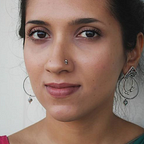Meel Patthar (Milestone): Blue Walls, Steel Almirah
Catch this gnawing nostalgia of a film by writer-editor-director Ivan Ayr on Netflix.
Blue walls. Steel almirah. A Dalai Lama photo frame. Wet waste in plastic cover.
This lower middle class setting is all too familiar to my eyes. I knew that the colour of the walls in my house had to change once I entered college and saw photos of my classmates’ houses on facebook. There was an aspiration encrypted in the colour of the walls of their rooms. So when I watched Milestone or Meel Patthar (the same day it came out on Netflix), it was a cruel kind of nostalgia. Something that I wanted to wash off of me. And maybe something that the country has tried to wash off as well. So the story bleeds from the margins of our society, where mainstream lens refuse to focus.
The camera walking behind Ghalib while his back hurts gnaws at you in the most artistic way possible. The new jacket our protagonist Ghalib wears made me feel so uneasy because of the physical labour that was to follow. They say art must show and not tell. This film definitely successfully shows that life goes on. On the level of the story, we know that the character is moving on despite loss. But also on the level of filmmaking, when it comes to you in the middle of a pandemic, it speaks to you differently.
There’s also a feeling of an impending (yes, impending) revolution. The quiet of the movie shakes the reader/viewer so much that I kept asking, where is the revolution? It must be happening somewhere behind all of this; or is the revolution coming? The presence of Amir Aziz the activist poet appearing as the Chief of the labour union, adds to this feeling. Everytime he speaks, it feels as though he’s speaking for something bigger than what is at hand.
The women in the film have a naturally strong presence although it’s not clear what their role is. The sarpanch of the village is a woman placed as though providing an alternative justice. The film is set, dare I say, in the backdrop of the CAA-NRC protests because it asks pertinent questions about the insider/outsider debate without really pronouncing them in so many words. The hero of the film, Ghalib, was born in Kuwait. He’s married to a woman from Sikkim, his neighbour is from Kashmir. We’re constantly made to question, who is the native here? Who is the foreigner?
I haven’t watched French cinema, but this is how I imagine it to be. It’s really the greys of the poster that drew me to the film. Seemed like the kind of colour palette I want to be a permanent part of. It’s not the story that draws you in, it’s the individual frames that capture you. There’s poetry without heavy pretence. There’s simultaneously detachment and anguish, eloquence and clumsiness, inescapable claustrophobia and freedom from the material world. It is necessary and pressing but inherently unbearable. I have travelled in BMTC buses for the larger part of my life. BMTC buses are really glorified trucks. So in the film, when the truck is moving (it is always in the continuous tense), I can smell the diesel, the smoke, the filtered dust in the remote but familiar landscape, the cheap alcohol, the stench from the seat, the bad roads, the churning in my stomach worsens.
